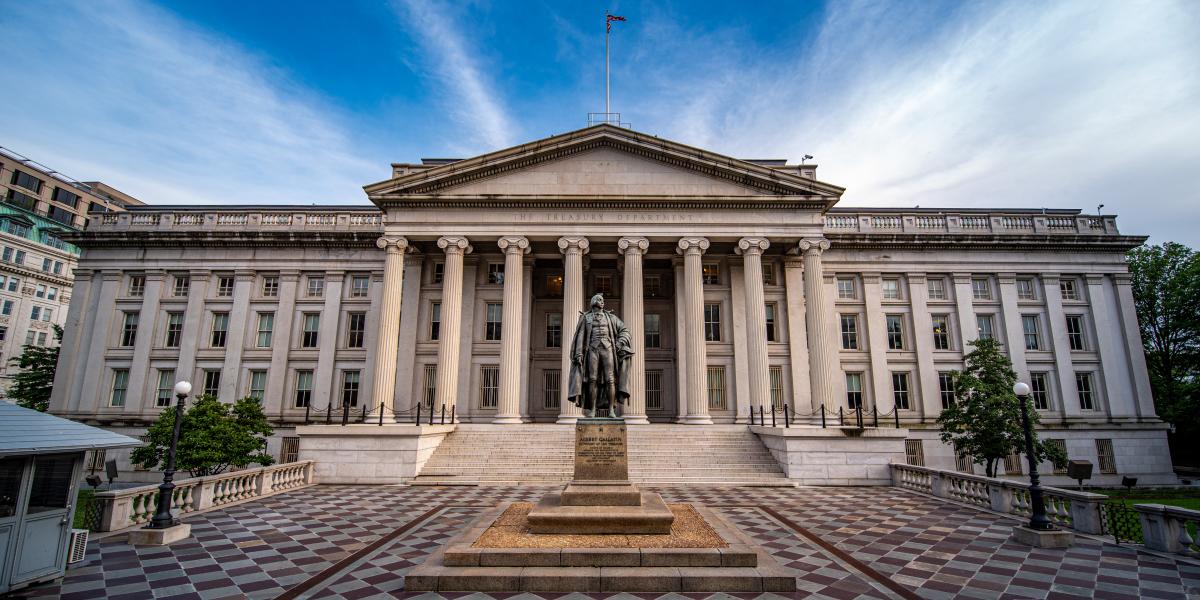
It’s Always Been Hamiltonian Statecraft
Walter Russel Mead asserts in his new piece in Foreign Affairs that what he labels as “Jacksonian national populism” and “Jeffersonian isolationism” have made a significant comeback during the 21st century. According to him, President Bush’s 2003 invasion of Iraq mirrors Jacksonian populism and that Donald Trump’s victory in 2016 was a sign of the collapse of neoconservatism in the American electorate. Shockingly, he also asserted that both parties have seen restraint and free trade as being dominant. His article emphasizes the collapse of liberal globalism and the crucial importance for a return to “Hamiltonian” foreign policy.
What is Hamiltonian foreign policy according to Mead?
Mead’s inconsistent, utopian opinion is that Hamilton’s focus was essentially neo-colonialist and mercantilist in nature. His view of Hamilton is that he supported a pragmatic approach to foreign policy, with a focus on corporate success and economic protectionism. He lays out a romantic view of Hamilton—the “patriot”—who supported a nation which emphasized national business interests over laissez-faire capitalism. This is, of course, done through a lens which paints Hamiltonian nationalism as purely a selfless strategy for statecraft, rather than a corrupt mixture of government and business interest, resulting in a type of corporatism. This type of government-corporate relationship, extended beyond the national borders of the United States, becomes neo-colonial in nature.
Refuting the romantic story of Hamilton is first necessary here. Hamilton was not an American patriot, he was a hyper fan of the British empire and its mercantilist system. Hamilton is known as advocating against state sovereignty, or even against the federal system altogether. He pursued centralized state power and a president who would stay in office for life. He regularly acted as an apologist for the British, even scheming to keep the colonies under the crown until it was obviously not politically popular. Hamilton envisioned America as an extension of British mercantilism, an economic model which is chronically unable to perform efficiently.
Mercantilism was a system which gave explicit privileges to individuals or groups favored by the state. Thus, economic decisions were not made with efficiency or market preferences in mind, but with the interest of those favored corporations. The mercantilist system fell out of political popularity as it became increasingly ineffective and costly. As new avenues of trade opened up around the world, it became abundantly clear that this form of economic protectionism was not economically viable.
Rather than embracing the Enlightenment principles espoused by John Locke and Thomas Jefferson, Hamilton was dedicated to the regressive ideas of Hobbes, who romanticized the sovereign and had no understanding of spontaneous cooperation or market efficiency. The United States was founded on the ideals of self-determination and the consent of the governed. Hamilton’s legacy is directly opposite of these ideals and his ideas have managed to stay popular after his death, partly due to the nationalist victory at the Constitutional Convention.
Just as high levels of state interventionism and economic planning have been prevalent in America, so has Hamiltonian foreign policy. Mead asserts in his article that liberal internationalism and neoconservatism are distinctly different from his Hamiltonian pragmatism, but the problem is that, historically, the incentives have always revolved around cronyism and American influence.
At the very best, ideas of international order and humanitarianism were never consistently upheld. After forcing the US into World War I, Wilson crafted the League of Nations—an organization meant to end future conflicts and uphold ideas of self determination. Neither of these things were accomplished. Ethiopian emperor Haile Selassie famously pleaded for the League of Nations to stop Italy from invading his country, but nothing was done. Additionally, Wilson’s interventions into the Caribbean and Central America were anything other but altruistic. Former Marine Corps General Smedly Butler said about his actions under Wilson,
I helped make Mexico safe for American oil interests in 1914. I helped make Haiti and Cuba a decent place for the National City Bank boys to collect revenue in. I helped purify Nicaragua for the internal banking house of Brown Brothers… I brought light to the D.R. for American sugar interests in 1916.
Another supposed internationalist, President Obama, famously ruined Libya for generations when he involved America in the overthrow of Muammar Gaddafi. Obama also increased American involvement in Syria in an attempt to oppose Assad. To do this Obama funded Islamic rebel groups, with some of these rebels being part of the Islamic Brotherhood. Maybe the most damning, Obama allowed the Saudi regime to commit what is widely regarded as genocide against the Houthis in Yemen. The Saudi Arabian air force was completely maintained and funded by the United States, and has killed over 300,000 people and left 80% of the population in dire need of humanitarian assistance.
The neo-conservative mission of policing the world with a mission of punishing evildoers is also not consistently seen through America’s history. Neo-conservatives have had no problem ensuring that America’s presence is felt around the globe, but Washington has done a terrible job of ensuring that they ally with virtuous partners and consistently punish evil. The US under Reagan of course supported dictator Saddam Hussein during the Iraq-Iran war, even helping Iraq obtain chemical weapons. Eventually George H.W. Bush would lie America into war against Saddam’s Iraq, a country of which the United States still occupies a part.
Even brief glimpses of a truly realist foreign policy have not lasted long. President Kennedy was famously assassinated after he challenged the CIA’s authority to intervene around the globe without oversight. President Trump, during his first presidential campaign, spoke often of the need to bring the troops home and avoid unnecessary wars, but he was unable to fully realize this, and acted consistently in a way which favored Saudi and Israeli interests rather than American interests.
That understood, this article asserts that Hamiltonian foreign policy has been out of fashion and that American politicians act in accordance with liberal or isolationist values. This is, of course, absurd and demonstrably false. Any serious person with an ounce of historical understanding can see that most of American foreign policy has always been towards securing national business interests and American supremacy. The Marshall Plan was not an altruistic program, but a scheme meant to open European markets to America when Europe was recovering from the devastation of World War II. The US supported communist Pol Pot in Cambodia simply to deter Vietnamese regional influence. Bush Sr. did not go to war with Iraq in 1990 simply to defend Kuwait, but to defend American and British oil interests in the region.
Consistently, America has been on the wrong side of conflict and intervention. This is usually to favor bankers, Department of Defense contractors, politicians, and other special interest groups. The fantasy that America has retreated into isolationism should not be taken seriously, nor should the idea that neo-conservatives and neo-liberals act primarily to serve their disinterested ideologies.
Every aspect of Hamilton’s legacy should be remembered for what it was—he was an elitist, hyper-nationalist, chameleon who used the Federalist Papers to spread propaganda and to ensure that the nationalists would succeed in securing power at the Constitutional Convention. His love of mercantilism should be an additional blotch on his record, rather than something to admire.
Originally Posted at https://mises.org/
Stay Updated with news.freeptomaineradio.com’s Daily Newsletter
Stay informed! Subscribe to our daily newsletter to receive updates on our latest blog posts directly in your inbox. Don’t let important information get buried by big tech.
Current subscribers:



